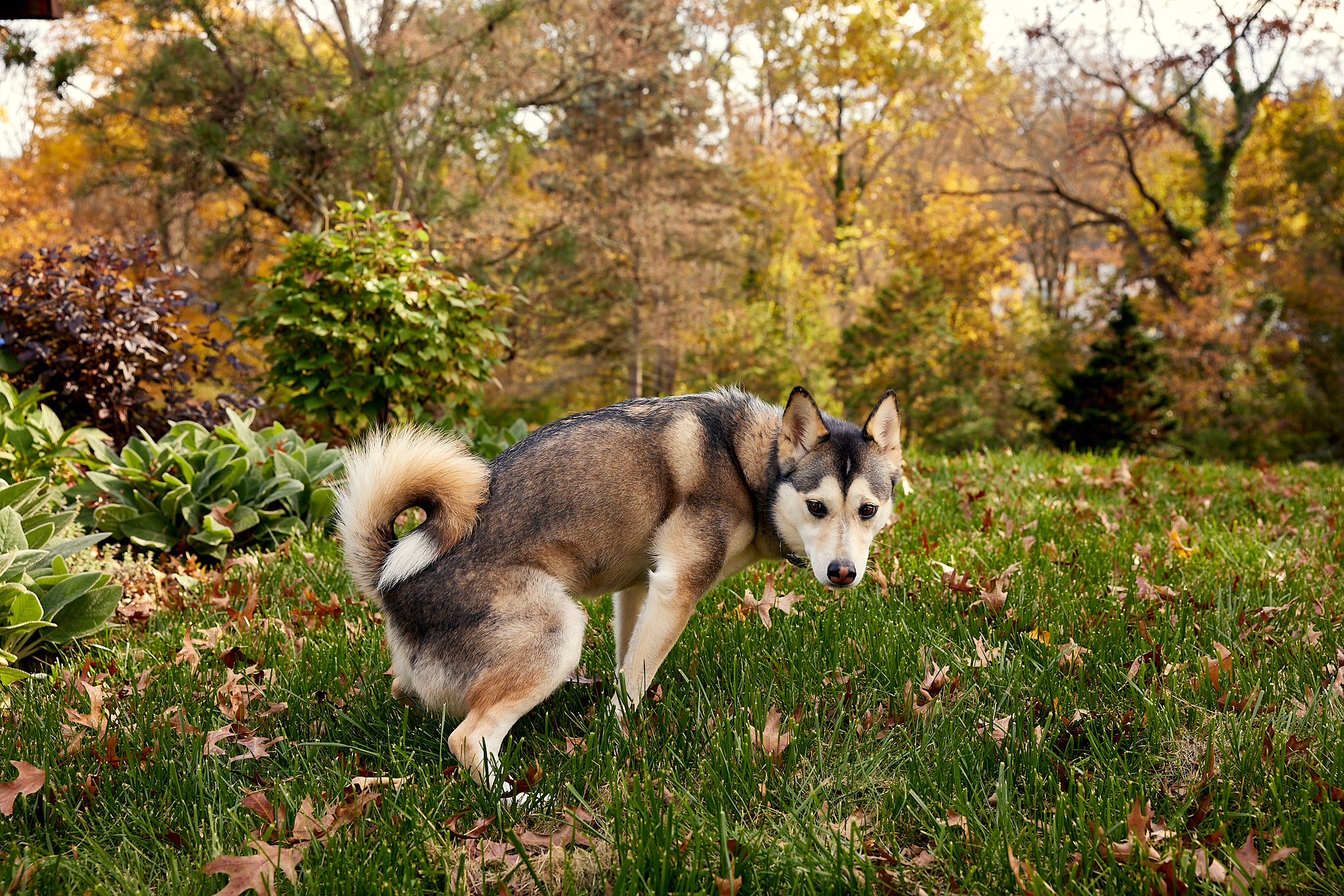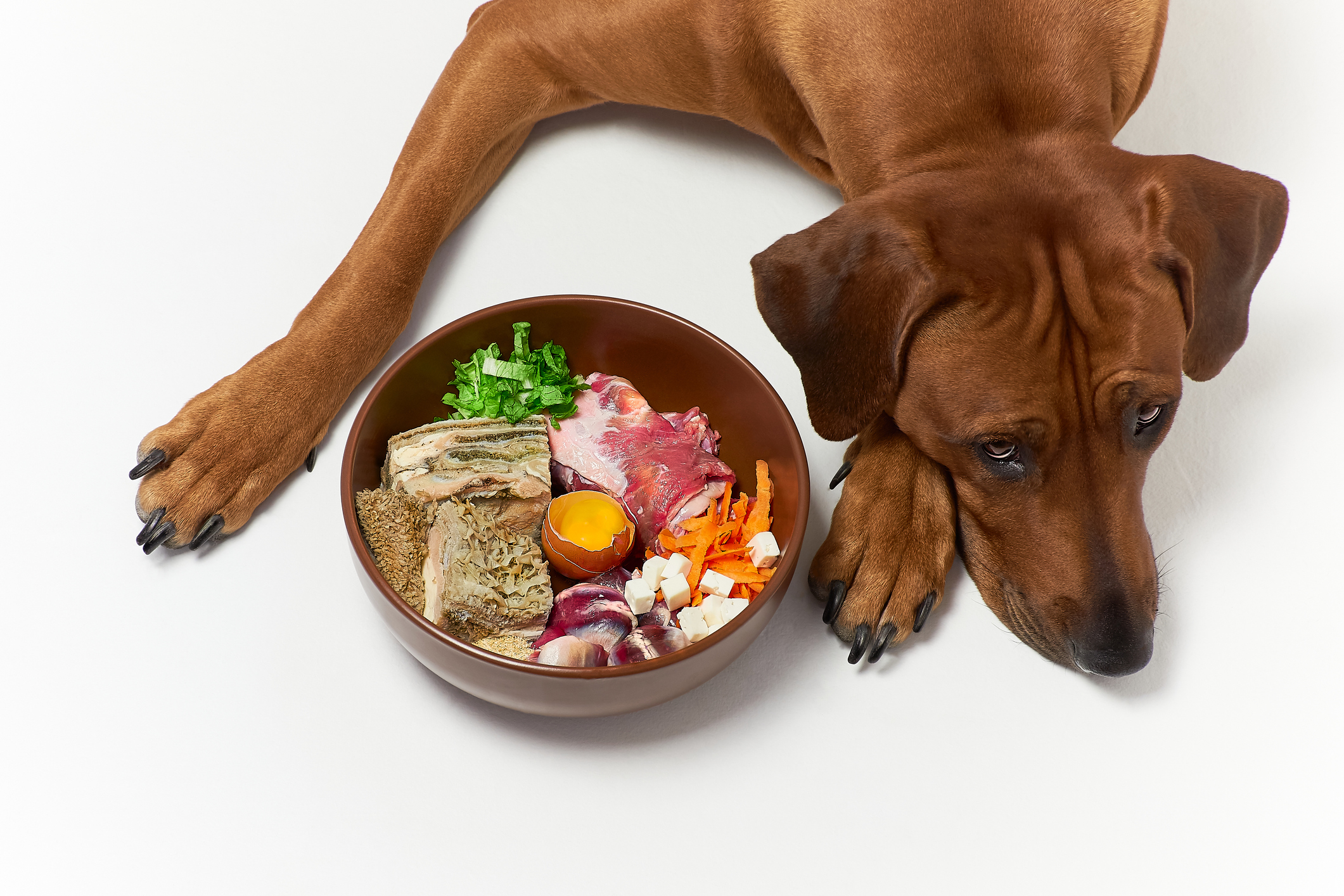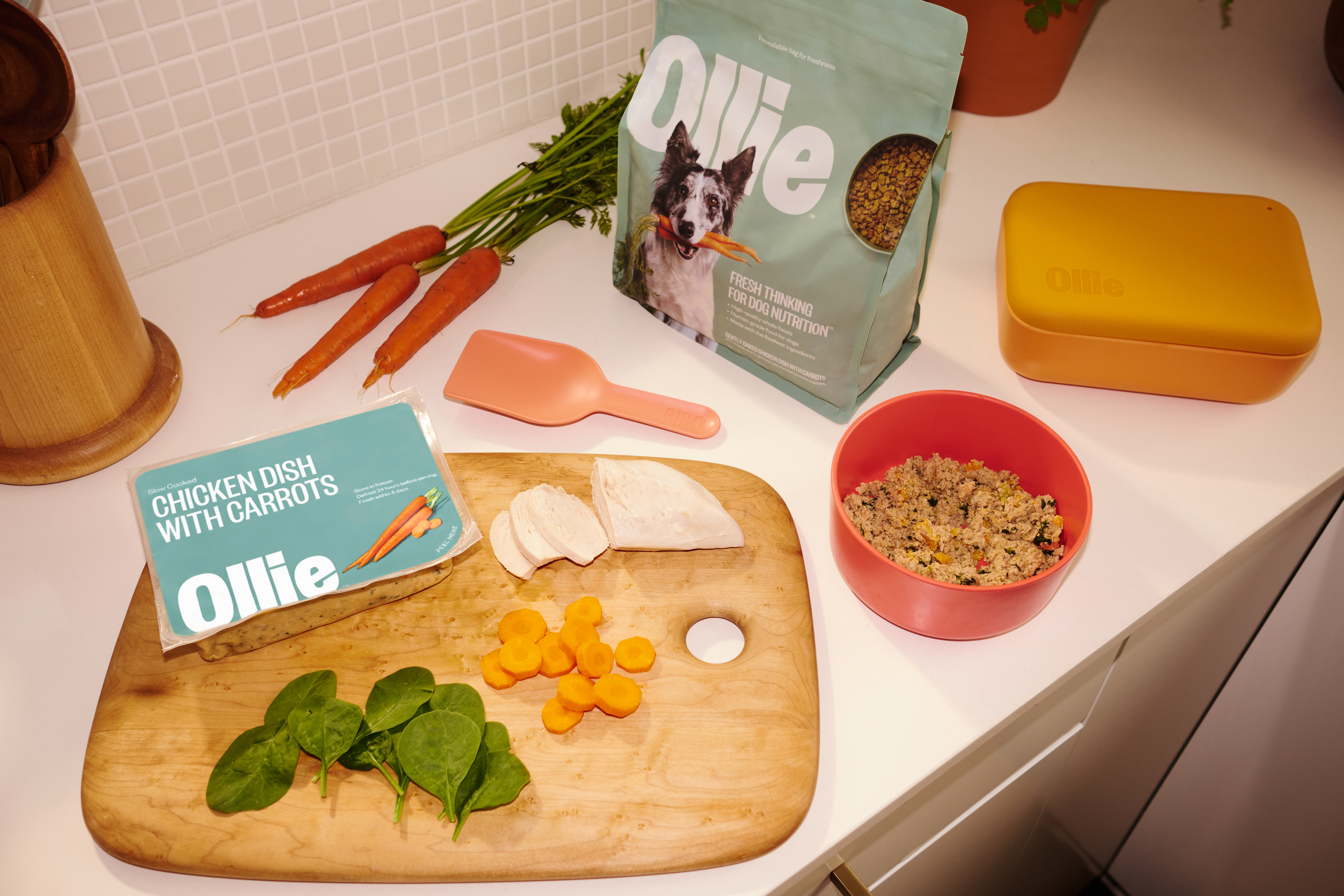Hey Ollie blog readers! We’re offering you an exclusive 60% OFF your starter box! Try now!
Even if we aren’t personally the healthiest humans on the planet, most of us have a general idea of what types of food are better for the health of our bodies and minds.
We know that eating whole natural foods with fewer ingredients is generally the right thing to do, and the harder to read and spell the ingredients on the back of the box are , the worse they are for us.
Most of us can see through the faux “health foods” at the store, which often claim to be low-fat but are packed to the brim with sugar. We’ve found that those fad diets are usually marketing schemes with little to no science to back them up.
Yet, for some reason, we don’t apply the same level of discernment to our dog’ diets and health. It’s high time we became more responsible parents and caretakers for our pets and learned what food is best for pups of all ages, breeds, and sizes.
So, what is the healthiest food to feed your dog?
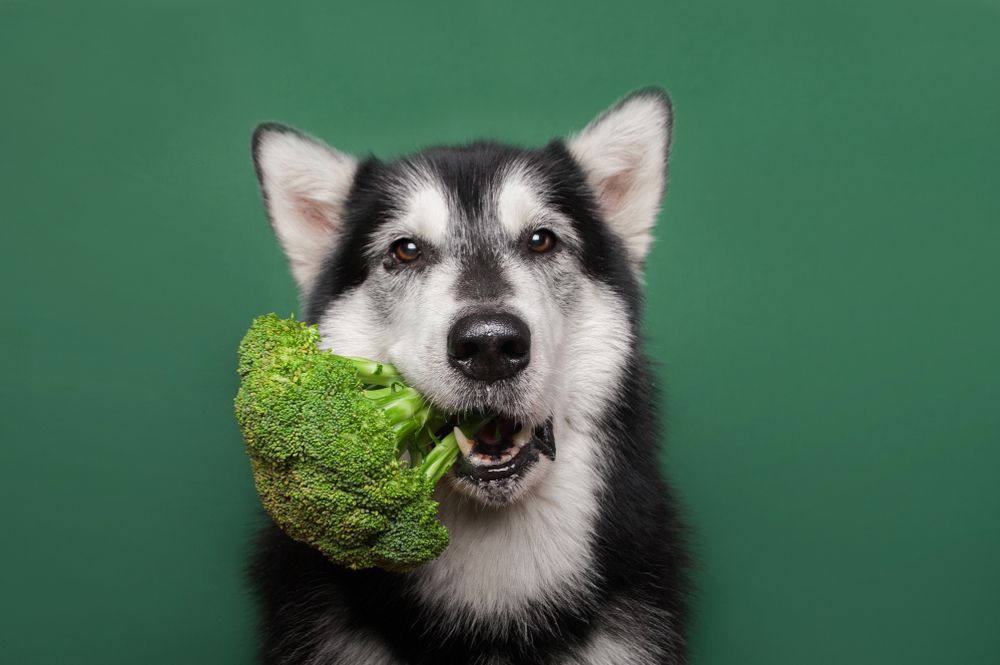
What dogs need the most
Just like us humans, dogs are reliant on six essential compounds to make their bodies work. You may have heard of them:
- Water (dogs, like humans, are made of nearly 80%) )
- Proteins and amino acids: the building blocks of our muscle and tissue
- Fats: needed for the healthy absorption of nutrients —specially omega 3-fatty acids commonly found in fish oil
- Carbohydrates: converted to sugar for energy or storage
- Minerals: key for healthy blood and organ function
- Vitamins: supports immunity, healing, and hormones including niacin, vitamin b, vitamin c, vitamin e, vitamin a, riboflavin and many others
As you can see, we mammals are on the same page when it comes to the basics. All of these components are exactly what’s in our “people food.” Eating the right foods, both for dogs and humans, can encourage healthy weight loss or prevent unhealthy weight gain.
The folks over at the Association of American Feed Control Officials (AAFCO) write the rules and regulations on what types of commercial dog food can be brought to market.While we’re happy there is some degree of oversight in the pet food industry, we’re less satisfied with the level of quality we see on store shelves.
As so many veterinarians and pet nutritionists say, you should give your dog the best possible food you can afford to protect your dog’s immune system, your dog’s teeth, and their overall health.
That means finding food that features a relatively short list of real ingredients that aren’t 8 syllables long and requires a medical license to pronounce.
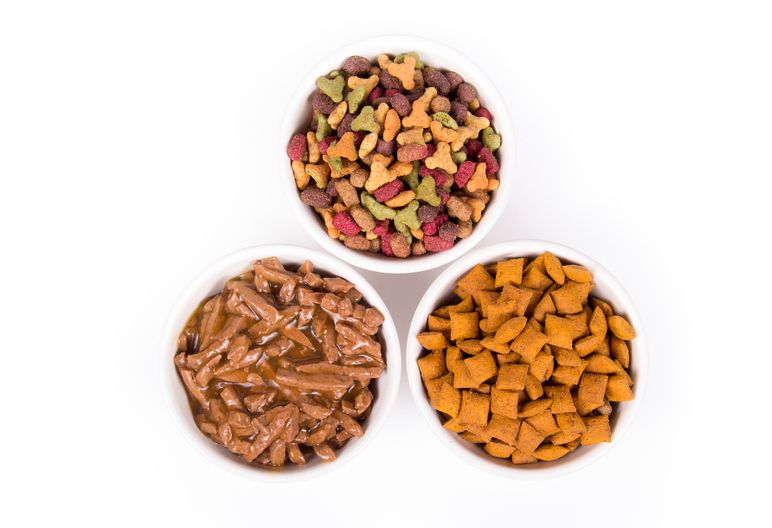
Unpacking the dry vs wet food debate
While most of the mass-marketed dog food products are dry like kibble, we are firm believers in serving your dogs food with some degree of moisture.
Even if it means adding a little bit of water, sweet potatoes, or a small amount of coconut oil to the bowl, dogs tend to use their digestive systems better and absorb more nutrients when their food isn’t dry as a bone (Bonus tip: bones can be a choking hazard!).
We recognize that there are convenience and cost factors to buying dry dog food in bulk and keeping it in a cool place for easy access, but if you can swing it, try to find something fresher.
Unfortunately, shelf-stable wet food presents new problems and headaches for owners too, even if it is better for their dog’s digestive system.
For one, cans and tins are a hassle to deal with. We can barely organize our pantry, and adding dog food to the situation can feel like a new roommate just moved into the house.
Secondly, most of the wet dog food in the grocery store does not pack a whole lot more nutrition than bagged dry food.Sure, it may be marginally healthier and more enjoyable for the pup, but is it worth the extra cost, storage, and work required?
We noticed that many dog owners missed out on opportunities to up the level of quality for their pets, which is why we founded Ollie and changed the whole game.
Our fresh recipes are designed with your dog’s needs and exact specifications in mind, taking into account his/her age, breed, level of activity, allergies, and more.
Every meal is the perfect portion of food for your dog’s stage of development and any unique health requirements. Puppies and adult dogs, and even senior dogs all have different nutritional needs.
We’ve also addressed the problem of storage through regular home delivery.This ensures that your dog’s food is always fresh, and you never end up wasting a meal.
Every week is mapped out for you, so all you have to do is follow the foolproof feeding guidelines and watch your dog dig into the best food feast they’ve ever had!
Foods to always avoid
Most dog owners are aware of the big no-no foods that our dogs can never get near, but some under-the-radar ingredients aren’t common knowledge.
According to the consumer review site, Clark, the consequences of the wrong bite can be deadly.
Here’s a list of food types to never allow your dog to consume:
- Methylxanthines: Are present in chocolate and any product containing caffeine. This compound can cause seizures and organ failures. Avoid at all costs!
- Xylitol: Is found in artificial sweeteners like sugar-free gum and other added sugars. Also present in some unsalted peanut butter. It causes blood sugar to spike and can lead to dehydration or nervous system damage.
- Alliums: The family of veggies that include onions, garlic, shallots, and chives. Cooked, raw, or powdered, these are all bad for dogs’ red blood cells and liver function.
- Alcohol: It may seem like an obvious one, but never give them even a little sip to celebrate.
- Super-salty human food snacks: This includes chips or pretzels with crazy amounts of sodium that dogs’ systems can’t handle. It can lead to dehydration or worse.
- Nuts: Especially macadamias, nuts contain levels of unhealthy fat that can’t be processed by most dogs. Do not toss them any! It could lead to significant physical problems.
- Grapes and raisins: They are toxic to dogs, despite scientists not quite knowing why. Even one or two can do a lot of damage.
- Raw meat, raw organ meats, and raw eggs: Contains bacteria that affect dogs more than humans. Make sure food is cooked if you feel like you MUST share a bite.
- Bones: They may be the quintessential dog treat, but watch out for small bits and shards that break apart or splinter, and don’t let the pup consume them. It can tear apart their digestive system.
These guidelines come straight from the American Society for the Prevention of Cruelty to Animals, so we better take them seriously!
So what about supplements?
Humans have been subject to the multi-billion-dollar budgets of the health supplement industry for years now, and it’s at the point where we don’t know what to believe!
The truth is that supplements such as probiotics are not the main course, and should never be relied on to deliver the majority of your dog’s key nutrients and vitamins.
According to the pet blog at WebMD, too many pet owners are over-eager to serve supplements to their pets, thinking that more is always better for health benefits.
Since most dog foods receive a wide range of nutrients and vitamins in each meal, the majority of supplements are unnecessary.
The reality is that once a dog’s body reaches the necessary level of a particular vitamin or mineral, the remaining compounds are flushed out and never used.This means that folks waste tons of money every year on supplement products that aren’t even working.
On top of all that, supplements just take up more space in your cabinet and more time in your schedule. Not to mention, they can be annoying to administer.We personally think it’s always better to serve your dog real foodthat is loaded with everything they need for health and longevity.
No more guesswork
There are always areas of your pup’s health to improve on, whether it’s exercise, hydration, or simply giving their dogs enough daily doses of love. However, everybody gets busy now and then, and priorities shift around. It’s understandable.
Food, on the other hand, should never be an area of compromise. Ollie has mastered the art of meal prep for dogs because we understand all the crazy question marks that come with navigating dog food. We’ve raised tons of dogs ourselves, and found that sticking to a routine helps keep both pups and their parents happy, healthy, and not to mention sane!.After all, we have our own lives to run!
It is a fantastic feeling to know you’re giving your dog the best possible food, and that you aren’t leaving anything up to chance.
Whether you just got an adorable new puppy or you want to upgrade dog’s current food, we’ve got your back. We think you’ll notice the difference in your dog’s energy levels, digestion, and overall quality of life after you make the switch.
To sum it up, we found the perfect intersection of taste, cost, convenience, and nutrition that has never before been reached in the industry.
After taking the guesswork out of purchasing and serving dog food, you can focus on the stuff that matters most, like spending quality time with your four-legged friends!
Time to take your dog’s dinner to the next level?
Now that you know the full scoop on what makes a dog food healthy and worth your time and money, it’s hard to resist the fresh facts. Ollie makes it easy to feed your pup fresh, healthy food you can truly get behind. Find your pup’s perfect meal plan today!
The Ollie blog is devoted to helping pet parents lead healthier lives with their pups. If you want to learn more about our fresh, human-grade food, check out MyOllie.com.
Tagged As:

The nutrition your dog needs,
the food they want.

Enjoying our articles? Subscribe our Newsletters and get new articles directly to your inbox
You might also like
3 July 2025
5 MINS READ
How Fresh Food Can Help Your Dog Have Perfect Poops
As a pup parent, you’re likely very familiar with your dog’s bathroom habits. While it may not be the most glamorous part of taking care of your pup, a dog’s stool can be one of the most dir…
by Ollie Pets
3 July 2025
5 MINS READ
Understanding the Risks of Raw Dog Food
When it comes to choosing the right diet for your dog, understanding the full picture is crucial for making an informed decision. In this article, we’ll dig deeper into what defines a raw diet, …
by Ollie Pets
3 July 2025
4 MINS READ
Understanding a Balanced Diet for Your Dog
As a dedicated pet parent, you want to provide the best for your dog, and that starts with their food bowl. We all understand the basics of a balanced diet for ourselves, but what does that look l…
by Ollie Pets





